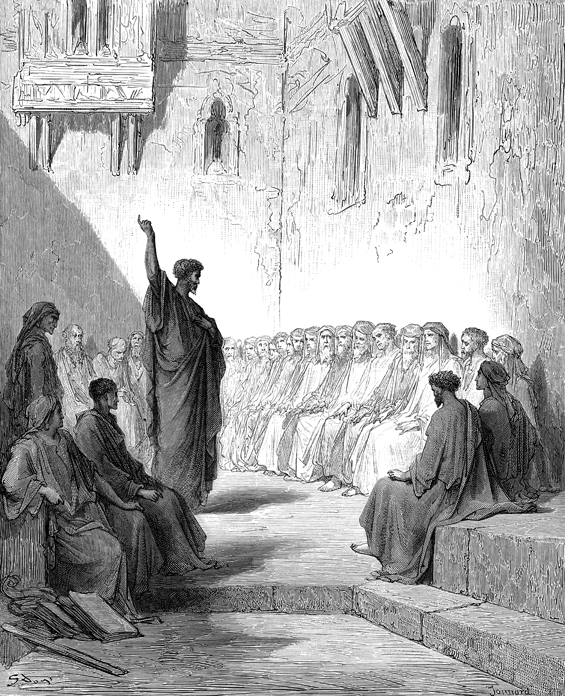
After unique calling from the Father, our next quality of the “apostolic mindset” to discuss is costly imitation of Christ (CLICK HERE to read the rest of the posts in this series).
In Acts 3:12-26, Peter addresses Jews in the Temple in his second recorded sermon. Within this, Peter identifies Jesus as the messianic servant of God, Who is exalted and lifted up in Isaiah 52. The context of this is the “suffering Servant”, a servant Whom God will glorify because he endures rejection by his people, offering his life as a sacrifice for sin. In the aftermath of this, we read in 4:1-31 of the first imprisonment of Peter and John, the priests and Sadducees annoyed at their proclaiming to the people of Jesus risen from dead. So they arrest them, imprisoning them overnight, while the next morning all of the rulers, elders, and scribes bring them before them. By what power, what name, did you do this, they ask, in reference to the healing of a crippled man? Peter replying that it’s by the name of Jesus that we worked healing the crippled man. Then Peter, without fear or apprehension, openly and boldly tells them of their heinous crime – that Christ is the head corner stone, which you rejected. And there is no other name under Heaven for men to be saved by…that’s our authority!
This all surprises the council – here we thought that these guys were a couple of illiterate, ignorant fishermen…what are they doing quoting Scripture like this, talking to us learned men with such confidence? Not to mention that the Jews have no answer as to how else the crippled man was healed. The two are excused as they deliberate – people saw it, we can’t deny it, so what do we do? The Jews thus warn them not to speak or teach anymore of Jesus, so as to prevent the spreading of Christianity, but as they respond…we cannot not speak and teach of Jesus! We cannot not say this, for there is no other name under Heaven by which we may be saved. Peter and John are not worried about offending people or causing trouble by proclaiming the truth. Jesus offended people to the point of being crucified, and the apostles offend people to the point of being crucified, beheaded, skinned alive. Precisely because I love Jesus that much and precisely because I love you that much, I cannot not say something. To not say something, to let people stay mired in sin, to watch people practice false religions and act like it’s all the same, that’s not love, but depriving people of the very thing, the very person, the very name they need. Who are we to be quiet about Jesus?
The implication to Jesus as the suffering servant is that if Jesus was rejected by His people, as a servant who suffered, then the apostles will not escape suffering themselves. Indeed, the life of the apostle in Acts is marked by persecution and suffering: arrests, threats, stonings, martyrdoms. It is a costly imitation of Christ, ultimately the cost of their very lives. At the same time, the corresponding reward of eternal life is the “pearl of great price”, worth giving everything else up for. In Acts 6:8-7:60, we read of the arrest and martyrdom of the deacon St. Stephen. In beautiful imitation of our Lord, Stephen prays for the forgiveness of those killing him. And as with our Lord, the imitation of Jesus, at the cost of his very life, bears fruit, for Stephen’s prayer for forgiveness is answered. For Saul, so influential in the killing of Stephen and persecution of the early Church, will go on to become the great St. Paul. Our imitation of the Lord may be costly, but it is likewise fruitful.

